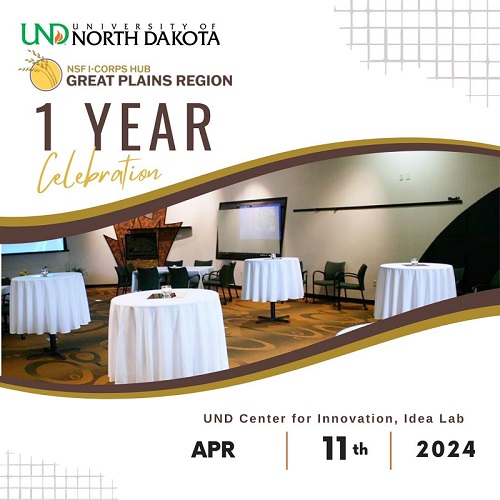ND Brain Injury Network receives grant to study brain injury and criminal justice system
A new program geared toward helping survivors of brain injuries deal with the judicial system will soon begin. Titled “Positive Outcomes for Individuals with a History of Brain Injury and Involvement Within the Criminal Justice System Through Screening, Identification, and Assessment”, this program will allow the North Dakota Brain Injury Network (NDBIN) to develop a comprehensive implementation plan to improve outcomes for people with brain injury within the criminal justice system.
The project is funded with a $15,000 Community Innovation grant from Consensus Council and the Bush Foundation.
“This project will have a positive impact on those employed within the criminal and juvenile justice system of North Dakota,” said Rebecca Quinn, program director for NDBIN. “Employees will have a better understanding of how best to serve their clients with a history of brain injury. The individuals will hopefully be more successful once they are released, which will help their families and loved ones. The citizens of North Dakota will benefit as the project will lead to cost reductions within the criminal and juvenile system and increase public safety.”
Studies show the prevalence of brain injury within the juvenile justice system averages 44%. Adult incarcerated populations with brain injuries range from 41% to 60%. In comparison, the prevalence of brain injuries in the general population of the U.S. is approximately 12%. Complicating this issue is that brain injuries often are invisible and not identified. When a brain injury goes unidentified, proper supports and accommodations cannot be provided.
There are currently 1,794 inmates in the state prison system in North Dakota, which sees nearly 1,500 admissions per year. Of these admissions, more than 13% (or 195 individuals) are reoffenders. The average cost of housing and caring for each inmate totals more than $42,000 per year, which means repeat offenders cost the state more than $8 million per year. With up to 60% of incarcerated individuals living with a traumatic brain injury, this equates to 1,076 North Dakota inmates, 140 reoffenders, and a recidivism cost of $5.8 million per year.
The program includes a partnership with the National Association of State Head Injury Administrators (NASHIA). NASHIA will assist NDBIN in assessing the need in North Dakota to develop a comprehensive implementation of a statewide brain injury screening, identification, referral, and assessment protocol for individuals involved within the state.
Statewide partners for this project will include:
- Department of Human Services, Behavioral Health Division
- Department of Corrections & Rehabilitation
- Protection and Advocacy
- Brain Injury Advisory Council
About the North Dakota Brain Injury Network
NDBIN is funded by a contract with the North Dakota Department of Human Services to provide information and support to individuals with brain injury and family members, and to assist them with navigating the service system. The NDBIN program office is located at the Center for Rural Health within the University of North Dakota School of Medicine & Health Sciences.
About the Center for Rural Health
Established in 1980 at the University of North Dakota, the Center for Rural Health is one of the nation’s most experienced rural health organizations. It has developed a full complement of programs to assist researchers, educators, policymakers, healthcare providers, and most important, rural residents to address changing rural environments by identifying and researching rural health issues, analyzing health policy, strengthening local capabilities, developing community-based alternatives, and advocating for rural concerns. For more information, visit RuralHealth.und.edu.
